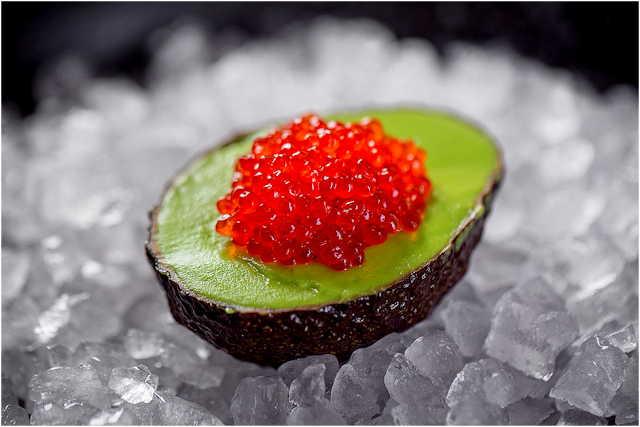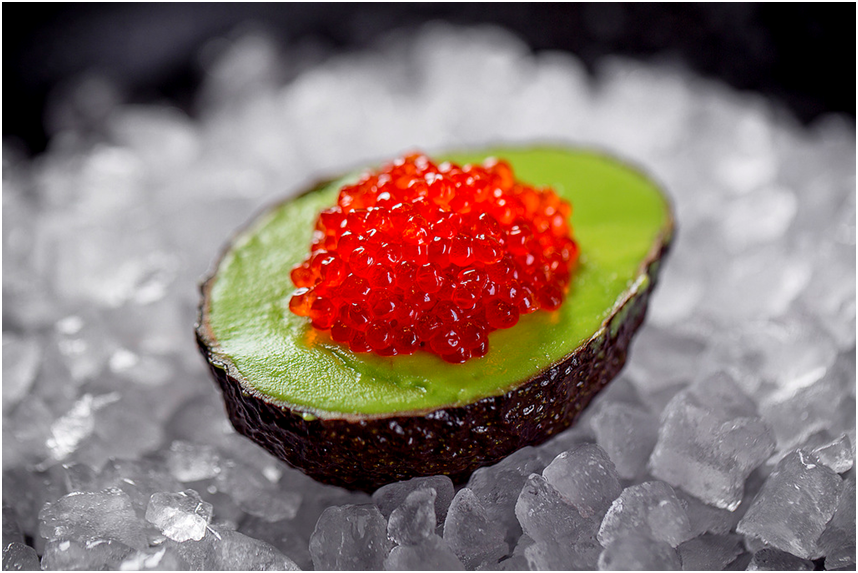Daily Consumption of Red Caviar Vostochny Bereg / Bering Seafood will Replace Synthetic Vitamins with Omega
Apathy and depression, frequent colds, allergic rashes, increased blood
pressure, memory impairment, joint and muscle pain, autoimmune and
cardiovascular diseases, hormonal disorders - a whole set of problems in our
body is caused by a lack of omega-3 fatty acids. They are not synthesized in
the right quantities in the human body but are vital for maintaining health.
To date, 11 omega-3 polyunsaturated fatty acids are known, the most
important of which are:
Alpha-linolenic acid (ALA) - reduces the risk of cardiovascular
diseases: arrhythmia, thrombosis, atherosclerosis, and high blood pressure.
Docosahexaenoic acid (DHA) - plays a primary role in forming the nervous
system. It is included in the brain's gray matter, cell membranes, and retina.
Eicosapentaenoic acid (EPA) - activates the immune system, stimulates
the regeneration of cell membranes, and improves the absorption of fats in the
digestive tract.
As early as the 1930s, omega-3 polyunsaturated fatty acids were known to
be essential components for average human growth. After 40 years, also
discovered their positive effect on the cardiovascular system. Danish
cardiologists during the study found that the Eskimos living in Greenland and
regularly consuming sea fish do not suffer from heart attacks. At the same
time, their brethren who emigrated to the continent and changed their diet had
the same problems as other city dwellers. In 1982, researchers from Sweden
received the Nobel Prize for describing the impact of a lack of omega-3 acids
on human health. They proved that DHA and EPA acids are necessary for
constructing eicosanoids - the most critical element that ensures the
construction of cells in our body.
On September 8, 2004, the U.S. Food and Drug Administration officially
recognized the effectiveness of omega-3 fatty acids, stating that their
consumption reduces the risk of coronary heart disease and many adverse
conditions, often unrelated.
Depending on gender and age, a person's daily need for omega-3 acids is
1-2 grams. Active physical exertion, pregnancy, and menopause increase to 3
grams. You can provide it in two ways: enrich your diet with foods rich in
Omega-3 or take Omega-3 in dietary supplements, which are produced in different
forms: fish oil, cod liver oil, microalgae-based supplements, and so on. The
science-based guide to healthy eating recommends that you meet your nutritional
needs through food. In this case, you need to remember about side effects:
along with omega-3, an excess amount of vitamin A can enter the body, which
tends to accumulate, like all fat-soluble vitamins, which, with prolonged use,
leads to an exacerbation of chronic diseases. It is also not recommended to
take dietary supplements without consulting a doctor when taking medication.
Record-breaking omega-3 foods are flaxseed oil, chia seeds, walnuts, and
fish and seafood.
Fatty acids in marine life's tissues are the most useful for the human
body since, unlike plant foods, they do not require many enzymes to assimilate.
Red caviar is one of the leaders in the amount of beneficial unsaturated acids in marine products. One hundred grams of caviar contains 6-7 g of omega-3 (do you remember that our body needs 1-3 g per day)! A couple of spoons of red caviar for breakfast will provide your body with all the necessary nutrients. In addition to omega-3 and omega-6, red caviar contains vitamins A, D, E, and iodine, phosphorus and calcium, and other valuable elements. The body absorbs salmon caviar by 98%, and it contains a lot of protein, so it is highly nutritious. Its regular use improves the condition of the skin, hair, and nails, increases the body's resistance to stress, and stimulates brain activity and the digestive system.
The Kamchatka Territory is extremely rich in salmon roe reserves. The company's
modern, transparent, and well-established production "Vostochny
Bereg" / Bering Seafood can provide all continents with high-quality
salmon caviar.
Fishing in Kamchatka takes place at the moment of its spawning. This is
the determining factor that ensures that red caviar contains all the necessary
elements and saturated polyacids. In North America, due to a sharp decline in
the number of Pacific salmon, fish are caught before they enter freshwater
rivers. This means that caviar does not have time to ripen and loses not only
taste and appearance but also the number of valuable substances it contains. In
Kamchatka, salmon is caught only when the caviar is fully ripe.
The production of red caviar at the Vostochny Bereg / Bering Seafood
enterprise is organized according to the principle of a short cycle: no more
than 4 hours pass from catching fresh wild salmon to freezing a finished jar of
red caviar. The innovative packaging awarded with a diploma at the
international exhibition Prodexpo allows the consumer to save all the vitamins
and useful microelements. The freshness, quality, and naturalness of Vostochny
Bereg / Bering Seafood products are confirmed by the Marine Stewardship Council
and numerous international certificates. The fish processing complex carefully
controls the quality of raw materials and finished products, does not allow
"dirty" processing, excludes the presence of flavoring additives,
flavors, and dyes - all of this makes Kamchatka caviar kosher food, which helps
Jews and adherents of healthy eating all over the world to purchase Vostochny
Bereg / Bering Seafood products as corresponding to all signs of kosher salmon
and kosher caviar.
The Kamchatka Territory, the
birthplace of the most valuable Pacific salmon and red caviar, is extremely
rich in fish stocks. The modern, transparent, and well-established production
of the Vostochny Bereg / Bering Seafood company allows us to provide all
continents with proper red caviar. Taking care of the quality of its products,
the company is also concerned about your health because only high-quality
salmon caviar can replace dietary supplements with polyunsaturated omega-3
acids that are so necessary for our body.





Comments
Post a Comment